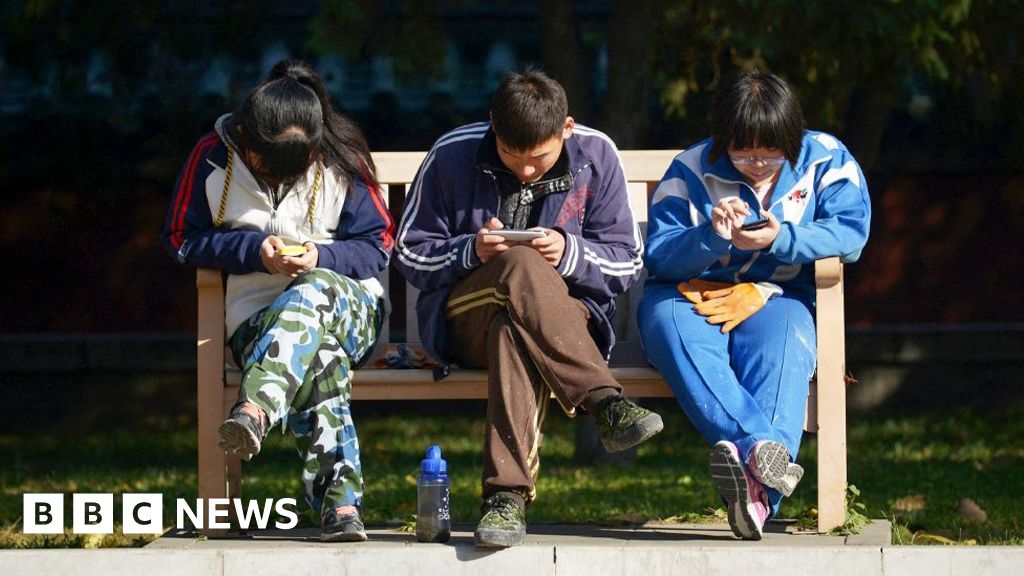cross-posted from: https://feddit.org/post/3384656
cross-posted from: https://feddit.org/post/3384598
China’s sputtering economy has its worried leaders pulling out all the stops.
They have unveiled stimulus measures, offered rare cash handouts [highly unusual as the Chinese Communist Party rejects any kind of social welfare because -according to the party’s narrative- it makes people lazy], held a surprise meeting to kickstart growth and tried to shake up an ailing property market with a raft of decisions - they did all of this in the last week.
On Monday, Xi himself spoke of “potential dangers” and being “well-prepared” to overcome grave challenges, which many believe was a reference to the economy.
[…]
Beyond the crisis in real estate, steep public debt and rising unemployment have hit savings and spending. The world’s second-largest economy may miss its own growth target - 5% - this year.
[…]
[…] New pieces of research […] found that Chinese people were growing pessimistic and disillusioned about their prospects. The second is a record of protests, both physical and online, that noted a rise in incidents driven by economic grievances.
[…]
Researchers conducted their surveys in 2004 and 2009, before Xi Jinping became China’s leader, and during his rule in 2014 and 2023. The sample sizes varied, ranging between 3,000 and 7,500.
In 2004, nearly 60% of the respondents said their families’ economic situation had improved over the past five years - and just as many of them felt optimistic about the next five years.
The figures jumped in 2009 and 2014 - with 72.4% and 76.5% respectively saying things had improved, while 68.8% and 73% were hopeful about the future.
However in 2023, only 38.8% felt life had got better for their families. And less than half - about 47% - believed things would improve over the next five years.
Meanwhile, the proportion of those who felt pessimistic about the future rose, from just 2.3% in 2004 to 16% in 2023.
[…]
Respondents were from 26 Chinese provinces and administrative regions. The 2023 surveys excluded Xinjiang and parts of Tibet.
[…]
Those who were not willing to speak their minds did not participate in the survey, the researchers said. Those who did shared their views when they were told it was for academic purposes, and would remain confidential.
Their anxieties are reflected in the choices that are being made by many young Chinese people. With unemployment on the rise, millions of college graduates have been forced to accept low-wage jobs, while others have embraced a “lie flat” attitude, pushing back against relentless work. Still others have opted to be “full-time children”, returning home to their parents because they cannot find a job, or are burnt out.
[…]
Analysts believe China’s iron-fisted management of Covid-19 played a big role in undoing people’s optimism.
“[It] was a turning point for many… It reminded everyone of how authoritarian the state was. People felt policed like never before,” said Alfred Wu, an associate professor at the Lee Kuan Yew School of Public Policy in Singapore.
Many people were depressed and the subsequent pay cuts "reinforced the confidence crisis,” he added.
[…]
Does hard work pay off? Chinese people now say ‘no’
In 2004, 2009 and 2014, more than six in 10 respondents agreed that “effort is always rewarded” in China. Those who disagreed hovered around 15%.
Come 2023, the sentiment flipped. Only 28.3% believed that their hard work would pay off, while a third of them disagreed. The disagreement was strongest among lower-income families, who earned less than 50,000 yuan ($6,989; £5,442) a year.
[…]
In 2023, a majority of the respondents in the Whyte and Rozelle study believed people were rich because of the privilege afforded by their families and connections. A decade earlier, respondents had attributed wealth to ability, talent, a good education and hard work.
This is despite Xi’s signature “common prosperity” policy aimed at narrowing the wealth gap, although critics say it has only resulted in a crackdown on businesses.
[…]
[Researchers also] saw a rise in protests led by rural residents and blue-collar workers over land grabs and low wages, but also noted middle-class citizens organising because of the real estate crisis. Protests by homeowners and construction workers made up 44% of the cases across more than 370 cities.
[…]
Chinese leaders are certainly concerned […] Censors have been cracking down on any source of financial frustration - vocal online posts are promptly scrubbed, while influencers have been blocked on social media for flaunting luxurious tastes. State media has defended the bans as part of the effort to create a “civilised, healthy and harmonious” environment. More alarming perhaps are reports last week that a top economist, Zhu Hengpeng, has been detained for critcising Xi’s handling of the economy.
The Communist Party tries to control the narrative by “shaping what information people have access to, or what is perceived as negative”, Mr Slaten said.
 54·3 months ago
54·3 months ago

